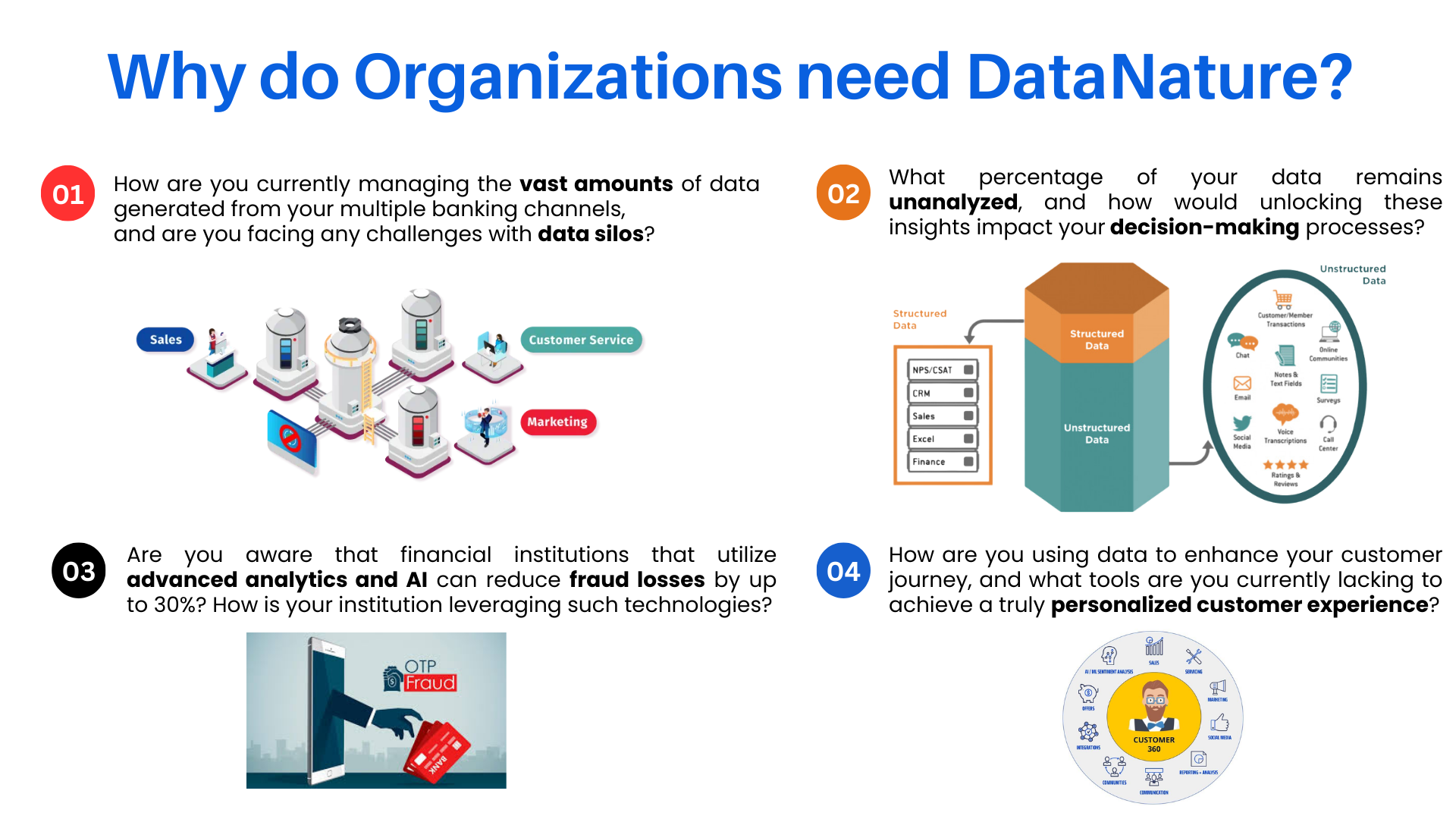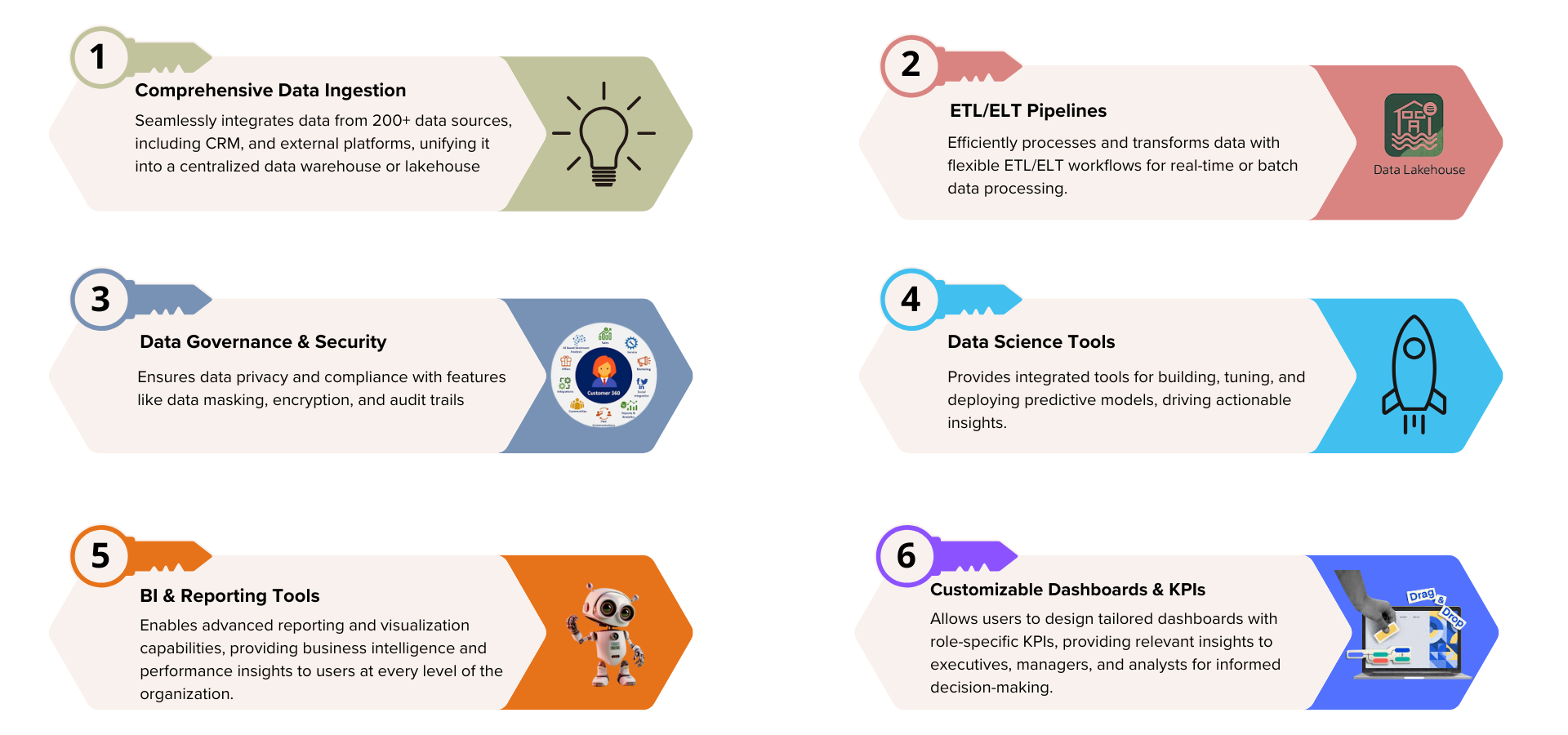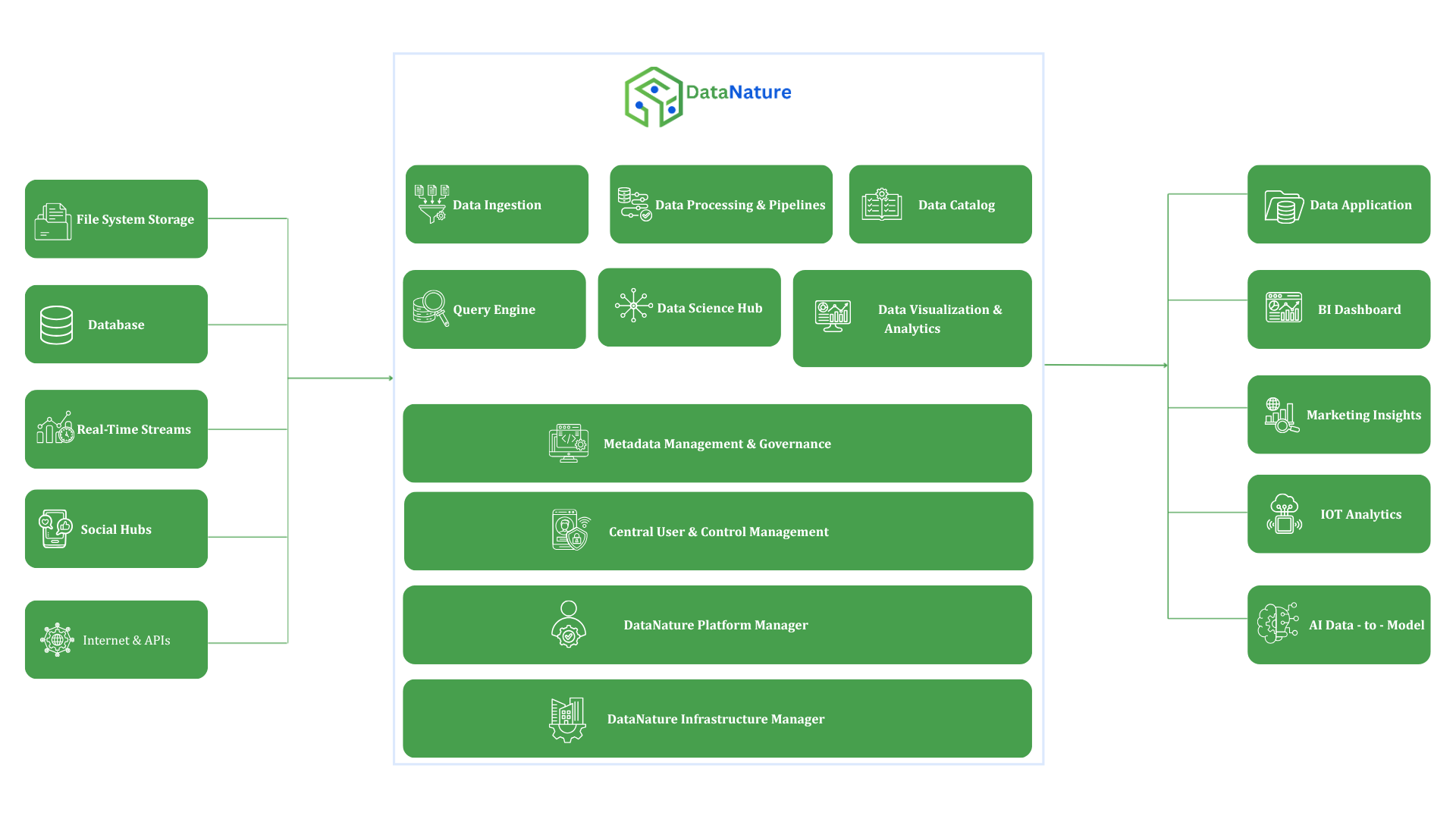
Key Features of DataNature

Benefits
Executives and Senior Management
The strategy focuses on strategic decision-making, regulatory compliance, and operational efficiency, utilizing data to support data-driven decisions.
IT and Data Management Team
The centralized data platform simplifies data management, reduces complexity from various sources, and automates routine tasks like provisioning and monitoring.
Marketing and Customer Relationship Teams
Customer segmentation allows for tailored marketing strategies, while personalized services enhance engagement and improve the customer experience.
Data Scientist and Analysts
AI and Analytics Tools provide powerful suites for use cases, real-time data processing, and a low code GUI-based interface, allowing analysts to make informed decisions with ease.
High Level Technical Architecture

Why Choose DataNature?
Financial Efficiency
Lessened reliance on expensive subscriptions, leading to cost savings.
Increased Flexibility
Greater freedom in selecting and integrating a variety of open-source tools.
Scalable Solutions
Overcame vendor lock-in limitations, allowing for scalable data solutions.
Improved Insights and Decision-Making
Leveraged best-in-class tools for enhanced data analysis.
Peak Performance
Utilize DataNature to enhance system performance, ensuring smooth operation of data-centric tasks and processes.
Resource Utilization
Utilize DataNature's efficient resource management capabilities to significantly enhance cost-effectiveness and utilization of your data center and cloud resources.
FREQUENTLY ASK QUESTION
HOW CAN WE HELP?
- What is DataNature?
DataNature is an all-encompassing, open-source tool for your modern data platform. It eliminates the need for multiple vendors, providing everything from a single unified source. It's built on the Kubernetes platform, offering flexibility, scalability, and robustness for your data applications.
- How does DataNature ensure the autonomy of my data?
DataNature is completely open-source and cloud-agnostic. This means you can run your data applications in your own data center, any cloud, on the edge, or even in hybrid environments. It also allows you to maintain your data sovereignty and prevent vendor or cloud provider lock-in.
- What makes the integration process with DataNature easy?
DataNature provides unified interfaces for monitoring, alerting, and log management, which streamline personalized integration with your business IT.
- Is DataNature flexible and scalable?
Absolutely! DataNature allows you to select the optimal mix of data tools in diverse versions, enabling you to move away from monolithic distributions. Plus, being a Kubernetes-based solution, it ensures scalable management of your data applications.
- How does DataNature cater to the Data Mesh principles?
The DataNature Platform is designed keeping the principles of Data Mesh in mind. It forms a substantial part of your self-serve data platform and includes federated computational governance with the application of Policies as Code.
- How reliable is the DataNature platform?
DataNature performs automated tests to ensure daily interoperability of all software components across various versions on multiple Kubernetes installations, making it a sturdy and dependable solution.
- What improvements can I expect from implementing DataNature in my business?
By using DataNature, businesses have seen significant enhancements such as a 35% increase in infrastructure efficiency, 40% reduction in operational costs, 35% decrease in system downtime, 45% improvement in resource allocation, and a 30% improvement in data-driven decision-making.
- Does DataNature offer support for issues or concerns?
Yes, DataNature provides a dedicated support team that is available to help address any issues or concerns you may encounter while using the platform.
- How does DataNature enhance security?
DataNature incorporates rigorous security measures to protect your data. The platform's comprehensive security protocols have resulted in a significant decrease in security incidents for our clients.
- Can DataNature be customized to fit my business needs?
Yes, DataNature is designed to be flexible and can be tailored to fit the unique needs of your business, whether you're running a small startup or a large enterprise.

